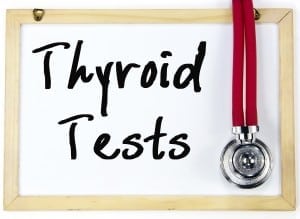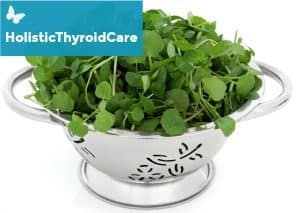
Natural Health & the Digestive Tract
Do you struggle with poor digestion? The purpose of the digestive system is to break down the foods we eat so that vital nutrients can be absorbed into the blood and used to fuel body processes. When a person’s digestion is poor, these goals cannot be achieved in full. If the liver, pancreas, stomach or one of the intestines fails to produce secretions, or if the secretion amounts are inadequate, then food cannot be broken down completely, nutrients are not available for absorption and food parts move unprocessed through the intestines. Poor digestion has been linked to a low-fiber, high-sugar diet, which can disrupt beneficial bacteria in the intestines and nourish harmful yeast; food allergies or intolerances that inflame intestinal lining; and irritable bowel syndrome, a condition that often involved poor absorption of nutrients. All of these impair digestion, as do autoimmune diseases and digestive-organ ailments. Excretion of large quantities of stool, skin problems, joint pain and weight loss may result. Barring an underlying disease, a healthy diet and natural remedies can help to ease troubled digestion.
What You Can Do: A poor diet is the first line of attack. Lack of fiber and high levels of sugar and refined flours can impair the movement of food through the intestine and disrupt its delicate ecosystem by favoring harmful flora and yeast. A high-fiber, low-sugar diet will support beneficial flora, discourage yeast and prevent constipation. Avoid coffee, alcohol and soda, which can lead to irritation and an inflammation of the intestines.
Finding the right diet for you: Pay close attention to how different foods and eating habits make you feel. Experiment to find out what works best for your digestion. Eliminate the top inflammatory foods for at least a month (two months are better): corn, soy, dairy, wheat, tomatoes, citrus, eggs, yeast, peanuts, gluten & sugar; common cooking oils such as grape seed, cottonseed, safflower, corn & sunflower oils; trans fats like fast foods, deep-fried foods & commercially baked goods; feedlot-raised meat, red meat, processed meat, and alcohol; refined grains including white rice, white flour, white bread, noodles, pasta, biscuits and pastries; artificial food additives: especially aspartame and monosodium glutamate (MSG) as these may trigger inflammation in people who already suffer with autoimmune conditions such as rheumatoid arthritis. Also include any foods in your elimination exercise you suspect may be causing a problem. Try four or five small meals a day instead of larger lunches and suppers, or eat your largest meal in the morning. Add foods back in slowly one at a time and give a few days in between. You can also try a higher-protein diet, a diet richer in raw foods or eating meals that do not combine proteins and starches.
Probiotics to support intestinal flora: Probiotics – as opposed to antibiotics – work to promote the colonization of lactobacillus and other beneficial bacteria in the intestines. It is these bacteria that create the right environment for healthy digestion. Yogurt with live cultures and acidophilus are probiotics. There has been debate recently as to how much beneficial live cultures are actually in store-bought yogurt. Probiotics are especially useful for combating the effects of antibiotics (which kill not only disease-causing, but also beneficial bacteria), autoimmune diseases, leaky gut syndrome, celiac disease, chronic stress, irritable bowel syndrome, and to maintain optimal health.
Extra Tip: Brief therapeutic fasts of 2 or 3 days can rest the bowels and give irritation a chance to subside. Drink plenty of water during your fast, and when you begin to reintroduce foods, start with fresh fruits, steamed veggies or soups. Those who want to fast longer and those with blood sugar disorders or cancer should consult a physician before attempting a fast.
~ Ginger as a Digestive Aid ~
 Gingerroot is taken to stimulate digestive secretions and increase blood flow to the stomach and intestines, improving the absorption of nutrients. Because it is considered a warming spice that increases circulation, ginger is often helpful to people who complain of feeling chilly and who also suffer from frequent gas and bloating. Add fresh gingerroot to sautéed chicken and vegetable stir-fry dishes. To make a digestion-easing tea, simmer 7-8 thin slices of fresh, peeled gingerroot in several cups of water. Add honey and the juice of a lemon to taste. Drink several cups of the tea a day.
Gingerroot is taken to stimulate digestive secretions and increase blood flow to the stomach and intestines, improving the absorption of nutrients. Because it is considered a warming spice that increases circulation, ginger is often helpful to people who complain of feeling chilly and who also suffer from frequent gas and bloating. Add fresh gingerroot to sautéed chicken and vegetable stir-fry dishes. To make a digestion-easing tea, simmer 7-8 thin slices of fresh, peeled gingerroot in several cups of water. Add honey and the juice of a lemon to taste. Drink several cups of the tea a day.
~ Medicinal Tea ~
 This tea stimulates digestive secretions.
This tea stimulates digestive secretions.
1 oz. hops 1 oz. wormwood
1 oz. peppermint leaves
1 oz. licorice root, shredded
1 oz. chamomile flowers
Pour 1 cup of hot water over 1 Tbsp. of the tea blend and let steep for 15 min. Drink 1 cup of the tea 3 times daily.
~ Preventative Techniques ~
 Because vinegar and lemon juice are acidic, they can help prepare the stomach to receive food.
Because vinegar and lemon juice are acidic, they can help prepare the stomach to receive food.
Add 1-2 Tbsp. of balsamic or raw apple cider vinegar, or 2-3 Tbsp. of fresh lemon juice, to a few oz. of water. Drink the mixture 15-30 min. before eating.
~ Homeopathic Remedies ~
 Take 5 pellets daily until symptoms lessen.
Take 5 pellets daily until symptoms lessen.
1. Lycopodium 6C, 12C, 30C for weak digestion with gas and bloating.
2. Pulsatilla 6C, 12C, 30C for symptoms after consuming cold drinks,
ice cream or fatty meats or eating late at night.
3.Ipecacuanha 6C for a coated tongue, constant nausea and salivation.
Resources:
Airola, P. (1996). How to Get Well: Handbook of Natural Healing. Sherwood, OR: Health Plus.
The Complete Guide to Natural Healing (1992). Ailments & Treatments. International Master Publishers.
Shannon wants to know: What’s your “go to” digestive aid?





